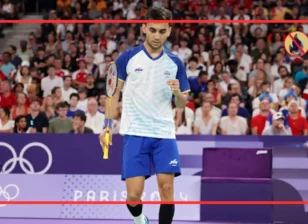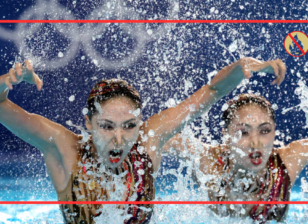French Racism issues Explained
The complicated web of racial and ethnic conflicts in France’s society have long plagued the country, which is frequently seen as the model of liberty, equality, and brotherhood. The country’s recent events have brought to light the ongoing historical and contemporary issues of racism. It highlights the conflict between cherished French Republican ideals and the urgent need for social inclusion and anti-racist mobilisation.
Unearthing Historical and Present Racism
A national reckoning was brought on by the beheading of a teacher named Samuel Paty in 2020. As a result of Paty’s death at the hands of extremism—who was well known for addressing caricatures of the Prophet Muhammad in a seminar on free speech. People in French communities have begun to reflect on the hidden prejudices that exist there. This horrifying occurrence highlighted the brittleness of the country’s social fabric and exposed cracks caused by both history and current racism.
Navigating French Republican Values Amidst Multicultural Realities
Conflict was made worse by the Michel Zecler affair. The horrific police attack on the Black music producer brought attention to the issue of police violence. It has persisted, and it addressed important issues regarding how Black and people of Maghrébin descent are treated by the French legal system. Such occurrences highlighted the conflict between the French Republican values of equality and the struggles minorities confront today.
Dilemma of Identity Politics and Ethnic Statistics
Importing Anglo-American views of race has frequently battled with French opposition to gathering ethnic statistics out of concern. Such information could feed identity politics and jeopardise the idea of a colorblind society. The cycle of marginalisation and prejudice is continued by this attitude, which makes it difficult to comprehend the difficulties faced by racial and ethnic minorities in France.
Islamophobia and Police Harassment: A Vicious Cycle
The difficulties faced by people of colour, notably those of the Muslim faith, have increased as Islamophobia has become more prevalent in French culture. Police harassment and bias during the Gilets Jaunes demonstrations, which were a movement for racial equality and social inclusion, sparked anti-racist mobilisation.
Confronting Colonial History and the Need for Acknowledgment
Although once a source of national pride, France’s colonial past has since become divisive, leading to demands for recognition and regrets towards former colonies. The effects of colonialism are still felt in modern French society, affecting the dynamics of race and ethnicity and calling for a sophisticated strategy to promote a more inclusive national identity.
Striving for Anti-Racist Progress Amidst State-Sponsored Violence
A determined effort must be made to combat colonial legacies, dispel ethnic stereotypes, and end institutionalised discrimination in order to achieve anti-racial stasis. This calls for an all-encompassing strategy that includes governmental change, societal transformation, and education to solve the interconnected problems of racism and ethnicity in France.
Towards a Path of Social Inclusion and Equitable Progress
The promotion of real policies that guarantee the safety and empowerment of racial. Ethnic minorities are what social inclusion initiatives must go beyond rhetoric. France may pioneer the way for a more equal and just society. It encourages true appreciation for variety and cultural heterogeneity, by highlighting the need for inclusive policies, affirmative action, and strong anti-discrimination laws.
Paving the Way for an Inclusive Future
Reflection and a readiness to face painful facts are required due to the intricacies of racism and race in France. French society must begin on a revolutionary journey that promotes a culture of understanding, respect, and empathy in light of the severity of marginalisation and prejudice experienced by non-white communities. France’s pledge of “liberté, égalité, fraternité” for all of its citizens, regardless of their racial or ethnic heritage, can only be genuinely fulfilled by collective action and a dedication to equality.
Breaking the Shackles of Suspect Citizenship: The Imperative for a Unified and Diverse France
In order to establish an atmosphere where everyone, regardless of colour or ethnicity, may thrive and contribute to the country. France must overcome distrust of citizenship, confront prejudices, review cultural myths, and challenge the status quo. As France confronts its past and present difficulties, it has the chance to build a future that values both unity and ethnic variety.
Conclusion
The path to eradicating racial and ethnic prejudices in French society is complicated, calling for a multifaceted strategy that prioritises social inclusion, acknowledges historical wrongdoings, and builds a more equitable future for all. France can only hope to build a society that genuinely embraces its treasured Republican principles of liberty, equality, and fraternity via a systematic and unyielding commitment to facing these difficulties.





